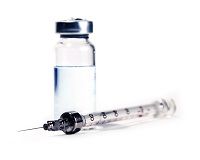Article
Gardasil 9 Gets FDA Approval
Author(s):
The US Food and Drug Administration today approved Merck's Gardasil 9, a vaccine that offers protection against 5 more types of Human Papillomavirus (HPV) than original Gardasil. In addition to preventing cervical, vulvar, vaginal and anal cancers caused by HPV types 16 and 18 (those prevented by the older version of Gardasil) Gardasil 9 also prevents those cancers caused by HPV strains 31, 33, 45, 52, and 58.

The US Food and Drug Administration today approved Merck’s Gardasil 9, a vaccine that offers protection against 5 more types of Human Papillomavirus (HPV) than original Gardasil.
In addition to preventing cervical, vulvar, vaginal and anal cancers caused by HPV types 16 and 18 (those prevented by the older version of Gardasil), Gardasil 9 also prevents those cancers caused by HPV strains 31, 33, 45, 52, and 58.
Those 5 HPV strains are responsible for about 20% of cervical cancers, the FDA said in announcing the approval. The new vaccine, like original Gardasil, also protects against genital warts caused by HPV 6 and HPV 11.
The other HPV vaccine on the market is Cervarix (GlaxoSmitheKline), which targets only HPV 16 and 18.
The American Academy of Pediatrics recommends HPV vaccination for both boys and girls ages 11 to 12.
The effectiveness of Gardasil 9 in children and teens ages 9 through 15 was determined in studies that measured antibody responses to the vaccine in approximately 1,200 boys and 2,800 girls in this age group. Their antibody responses were similar to those in females 16 through 26 years of age. Based on these results, the vaccine is expected to have similar effectiveness when used in this younger age group, the FDA said.
Gardasil 9 is administered as 3 separate shots, with the initial dose followed by additional shots given 2 and 6 months later. For all of the indications for use approved by the FDA, Gardasil 9’s full potential for benefit is obtained by those who are vaccinated prior to becoming infected with the HPV strains covered by the vaccine.
Though cervical cancer was once the leading cause of cancer deaths for women in the US, those deaths began to decline with the advent of the Pap test.
Still, according to the US Centers for Disease Control and Prevention (CDC), 12,109 women were diagnosed with cervical cancer and 4,092 women died of the disease in 2011.





